Event Highlights
Meet our speakers A global network of industry & thought leaders
Our carefully curated speaker lineup includes C-level executives, top safety experts and senior decision-makers from the global autonomous mobility industry.

Registration is now open! You can join us in-person or virtually
Start making plans to attend in Vienna or virtually, and get ready for a full day dedicated to safety for autonomous driving.

Motto & Key Topics in 2023 Moving beyond the hype: Unlocking potential
Discover the latest autonomous mobility developments, business models, safety challenges and solutions. Move beyond the hype & join us to unlock the potential of AV technology.

2023 Key Topics What awaits you this fall
You want to get an idea of what to expect? Read through our recent article and discover the key themes for this year’s edition of our flagship event.

Join the ecosystem Working towards Global Reference Solutions
You are invited to join forces in harmonizing safety in the autonomous mobility ecosystem.
Agenda
The Autonomous Main Event is held on September 14 from 8:00 am to 7:00 pm CEST
Under the motto, Moving beyond the hype, The Autonomous Main Event 2023 will shed light on the pioneering work that has been achieved so far, but also the current limits of automation from a safety point of view and the economic viability of AV technology. By attending, you can expect to hear on a wide range of topics.
Click on each session to see the detailed description.
Welcome Address by Ricky Hudi, Chairman of The Autonomous & Philip Schreiner, Head of The Autonomous
Fireside Talk by Dirk Linzmeier, CEO, TTTech Auto , Georg Kopetz, CEO, TTTech Group , Martin Kocher, Federal Minister of Labour and Economy, Federal Ministry Republic of Austria Labour and Economy and Young Sohn, Founding Managing Partner, Walden Catalyst Ventures
Opening Remarks by Dirk Linzmeier, CEO, TTTech Auto
The act of driving a car presents significant risks to both passengers and other drivers on the road. Despite this, manual driving has become incredibly safe, with the injury rate being at an all-time low.
However, the introduction of automated driving requires the transfer of highly safety-critical responsibilities from humans to computing systems, emphasizing the need to ensure that these systems meet our expectations for safety. Given that driving is an intricate task, creating a failure-free system without considering potential failure modes and their implications is seemingly impossible. One approach is to define a comprehensive system architecture that can break down the complex requirements of an automated driving system.
But how far can this top-down “safety by design” approach go? What are its benefits and limitations?
Speakers:
Bernhard Augustin, Head of development and integration of ADAS/AD sensors and compute platform, AUDI AG
Philip Koopman, Associate Professor, Carnegie Mellon University
Wenchao Wang, Chief engineer of GEEA 3.0 architecture, and Chairman of software technology committee, Geely Automotive Research Institute
Stefan Poledna, CTO, TTTech Auto
To be announced soon
Panel moderator:
Martin Törngren, Professor of Embedded Control Systems, KTH Department of Machine Design
Tracking the Hype and Realities of Autonomous Driving
In 2016, news articles in world leading newspapers would have led many to believe that autonomous driving was upon us. A couple of years it seemed, and we’d be watching the latest movie during our commute rather than keeping our eyes wide open for road challenges. The reality has been quite different, but what exactly did we get wrong? What if anything have we learned about the nature of autonomous driving - and is it even relevant anymore? Join NXP CTO, Lars Reger, as he explores the autonomous hype cycle through the eyes of a leading semiconductor partner and consider his vision for the future of driving and how the missteps of the past have shaped our perspectives of the autonomous, electric, software defined vehicles of tomorrow.
Software-Defined Vehicle (SDV) technology lays the foundation for self-driving cars. It is a work in progress that has come a long way and will see substantial advances in the next decade. By providing access to the latest safety, security, comfort, and convenience features, as well as over-the-air (OTA) updates, improved vehicle life-cycle management, and vehicle reporting, the SDV aims to significantly improve mobility. It seeks to transform the traditional vehicle-ownership experience by constantly enhancing and expanding its capabilities throughout its lifespan.
However, as with any new technology, with these advantages come increased risks. Safety-related software crashes, remote cyber threats, and significantly increased design complexity are among the top concerns for the industry.
Speakers:
Maria Anhalt, CEO, Elektrobit
Christian Sobottka, Associate Professor, HARMAN International
Alejandro Vukotich, Vice President, Product Management, Qualcomm Europe/MEA
John Wall, Senior Vice President, BlackBerry QNX
Simon Fürst, Cooperation Manager Automated Driving, BMW Group
Speakers:
• Working Group "Safety & Architecture": Georg Niedrist, Senior Fellow Technology & Innovation AT, TTTech Auto, Udo Dannebaum, Lead Principal Engineer Automotive Applications, Infineon
• Expert Circle "Safety & Regulation": Benedikt Wolfers, Partner, POSSER SPIETH WOLFERS & PARTNERS, Andreas Lauringer, CEO, Kontrol
• Expert Circle "Safety of Embedded AI": Juergen Schaefer, Senior Principal for System Architecture and Applications, Infineon and Thomas Schneid, Senior Director Software, Partnership & Ecosystem Management at Infineon Technologies, Infineon
Bringing autonomous driving to European streets: MOIA Ridepooling for the mobility transition
In his keynote speech, Sascha Meyer, CEO of MOIA, will present how new mobility solutions, like Ridepooling, can contribute to achieving the mobility transition in Europe. To maximize its impact, autonomous driving is the key technology for Ridepooling in large fleets: it promises lower traffic volumes, increased traffic safety, reduced congestion, and consequently, more livable cities. He will elaborate on how the company applies its experiences from offering a mobility service that customers love into the autonomous future. In collaboration with Volkswagen Commercial Vehicles, MOIA is developing an autonomous, internationally-scalable Ridepooling system in the German city of Hamburg.
Commercial vehicles play a key role in the AV market and are likely to become a viable business model. In particular, the recent advances in the development of autonomous trucks signal a heavy focus on freight transportation and new logistics trends. The transition towards industrial and commercial applications indicates a rising interest in addressing practical issues, such as the worldwide shortage of drivers, using autonomous vehicle technology.
Speakers:
Michael Wiesinger, Vice President of Commercialization, Kodiak Robotics
Sun-Mi Choi, Vice President Global Business Development, Plus
Sascha Meyer, CEO, MOIA GmbH
Johannes Deichmann, Partner, McKinsey & Company
The role of semiconductors in shaping smart autonomous mobility
The automotive industry has learned that high levels of automation require software and operating systems to address the complexity of a modern car. This complexity drives the need for dependable electronics with functional safety integrated in order to replace the human driver safely. We are replacing human-based sensing and processing techniques with semiconductor-based sensors, super-computing, and software platforms, which must always provide reliable and secure performance to build trust with the driver.
Dependable electronics are created when you have a system understanding of all safety and motion critical functions which translates to functional safety requirements, fail-operational systems, cybersecurity by design in the autonomous platform. The result requires strong cooperation of leading players in the value chain to jointly achieve more robust & trusted electronics for consumers who will not accept any compromises of their safety.
Semiconductors that include high levels of functional safety, quality, and security will also reduce the complexity of software and validation effort, and ultimately the risk of failures. These techniques apply to the vehicle’s sensing, compute, actuate, power, and communication. Semiconductors are the foundation for modern automotive architectures, thriving in a software ecosystem that attracts present and future consumers with advanced functionality and services.
Regulation of autonomous vehicles is an increasingly relevant topic in the automotive industry and has a substantial impact on the success and progress of safe automated to autonomous mobility. There has been extensive development in AV regulations worldwide, especially in 2022.
As of July 2022, new rules for autonomous vehicles took effect in the EU, already requiring a number of advanced driver assistance systems to be installed in all vehicles sold in the EU with the aim of improving road safety. In parallel, the U.S. National Highway Traffic Administration issued last year the final rules for the production and deployment of driverless vehicles, with several companies already permitted to test highly automated or self-driving vehicles on U.S. roads.
However, establishing regulations that foster innovation and, at the same time, promote safety is a challenging task that requires a multidisciplinary steering committee and a continuous exchange among engineers, politicians, lawmakers, insurers, NGOs and the general public.
Speakers:
Juergen Gleichauf, Chief Compliance Officer, Vice President Legal Product & Technology, Mercedes-Benz Group AG
Benedikt Wolfers, Founding Partner, POSSER SPIETH WOLFERS & PARTNERS (pswp)
Richard Damm, Chairman, UNECE Working Party on Automated, Autonomous and Connected Vehicles
Carter Stern, Director of Global Government Affairs Cruise
William H. Widen, Professor of Law, University of Miami
Panel moderator:
Junko Yoshida, Editor In Chief, The Ojo-Yoshida Report
Autonomous vehicles employ an assembly of complex sensors and perception algorithms to figure out what’s happening around them and to make a decision about what to do next. Safely getting a vehicle and its passengers from point A to B is no simple matter.
Sensing and analyzing the world at a granular level is crucial in making self-driving cars a viable transportation option. There is a myriad of challenges for the next generation of autonomous vehicles and their ability to sense the road, other vehicles, bikes, pedestrians, or even the road lines when construction throws ambiguous detours into the mix.
Speakers:
Sara Schneider, Director, Technical Program Manager for Autonomy Software, Aurora
Johann Jungwirth, Senior Vice President of Autonomous Vehicles, Mobileye
Oren Buskila, Chief R&D Officer and Co-Founder, Innoviz Technologies
Ralf G. Herrtwich, Senior Director Automotive, NVIDIA
Robin Schubert, CEO | Co-Founder, BASELABS
Hosted by Infineon
In 2022, The Autonomous welcomed Infineon Technologies as Lead on the topic of Safety of Embedded Artificial Intelligence. As part of the previous Main Event as well as in the ongoing Expert Circle, they aimed to create a common understanding of how to use AI safely for trajectory planning and control. Both planning and control can be enhanced with AI to reduce system costs, and increase energy efficiency and passenger comfort.
This workshop invites participants to join the ongoing conversations and discuss potential technical reference solutions.
Speakers:
Juergen Schaefer, Senior Principal Engineer System Architecture and Applications, Infineon
Mateusz Chmurski, Senior Engineer Artificial Intelligence Algorithms, Infineon
Mathias Haberjahn, Principal Engineer Artificial Intelligence Algorithms, Infineon
Stephan Baumgaertner, AI expert, Infineon
Register here.
Hosted by Baselabs & FDTech
This workshop provides practical insights into developing and integrating an automated driving stack in real-life scenarios. It emphasizes the challenges of complex technical systems, the importance of defining requirements, selecting appropriate technology blocks, and implementing validation infrastructures to meet safety-critical standards.
Register here.
Hosted by McKinsey & Company
Autonomous Driving: Quo Vadis? – Insights from a global expert survey
When will autonomous vehicles (AVs) hit the road? What enablers will contribute to their widespread adoption? What bottlenecks remain? To answer these questions and more, the McKinsey Center for Future Mobility and “The Autonomous” have launched a global survey and are gathering expert feedback from around the world – from incumbents with global-scale to local start-ups. In the workshop we will summarize the key survey findings and discuss them with representatives of OEMs, suppliers, and start-ups. Topics for the discussion are the adoption timeline for main geographies, technology readiness, the go-to-market strategies, and financing needs.
Speakers
Martin Kellner, Associate Partner, McKinsey & Company
Johannes Deichmann, Partner, McKinsey & Company
Sven Beiker, Managing Director, Silicon Valley Mobility
Register here.
Hosted by MathWorks
This workshop focuses on achieving fast and high-quality software delivery for software-defined vehicles. It emphasizes the importance of efficient updates, secure OTA infrastructure, agile development methodologies, and collaboration among stakeholders to meet the demands of the automotive industry while ensuring safety and customer satisfaction.
Speakers:
Dr. Martin Ritt, Manager Application Engineering Central EMEA, MathWorks
Dr. Tjorben Groß, Senior Team Lead Automotive Application Engineering, MathWorks
Simon Dürr, Senior Expert at Elektrobit
Moderator:
Advait Valluri, Senior Application Engineer – ADAS/AD, MathWorks
Register here.
Hosted by TTTech
This workshop focuses on the rapidly evolving fields of autonomous driving and future mobility technologies. It aims to address key challenges such as precise localization, sensor integration, intelligent decision-making, and distributed collaborative intelligence. The workshop aims to foster collaboration and knowledge sharing among experts, researchers, industry professionals, and policymakers to explore innovations and opportunities in this domain.
Register here.
-
Doors Open for Participants' Check-inNetworking & Coffee08:00 - 09:00
-
Welcome Address09:00 - 09:50
-
Panel ISafe architectures: how far can safety by design go?09:50 - 10:30
-
Speed Networking10:30 - 11:10
-
Keynote ILars Reger - NXP Semiconductors11:10 - 11:30
-
Panel IIWhat are the opportunities & challenges of software-defined vehicles?11:30 - 12:10
-
Networking & Lunch12:10 - 13:40
-
The AutonomousUpdate from The Autonomous Team13:40 - 14:10
-
Keynote IISascha Meyer - MOIA14:10 - 14:30
-
Panel IIIAutonomous commercial vehicles in the spotlight – are they leading the race?14:30 - 15:10
-
Speed Networking15:10 - 15:50
-
Keynote IIIPeter Schiefer - Infineon15:50 - 16:10
-
Panel IVRegulation – a bottleneck or a facilitator of autonomous driving?16:10 - 16:50
-
Panel VScene understanding: how do self-driving cars "see the world"?16:50 - 17:30
-
Mingling & Networking17:30 - 19:00
Speakers 2023 Big names, bigger ideas
Meet this year's industry leading speakers and moderators


Hudi
With over 32 years of experience in the automotive and technology industry, Ricky Hudi acts as Chairman of The Autonomous. Passionate about innovation and the development of autonomous driving technologies, Ricky is a true pioneer in the mobility sector. After holding various roles at BMW AG and AUDI AG he took over in January 2009 as EVP Development Electrical/Electronic AUDI AG. He also founded his own company “FMT – Future Mobility Technologies” and is leveraging a world-wide network of key players in the autonomous driving industry.


Anhalt
Maria Anhalt is Chief Executive Officer at Elektrobit Automotive GmbH, an award-winning software company and developer of embedded software products for the automotive industry. Prior to joining Elektrobit, she worked as Senior Vice President, Head of Cross Divisional Systems & Technology at Continental for two years. Earlier in her career, Maria Anhalt worked at HP, Hewlett Packard Enterprise and Micro Focus in various business management, business development and R&D management positions, especially regarding Hybrid Cloud and Automation Software.
What are the opportunities & challenges of software-defined vehicles?


Reger
Lars Reger is executive vice president and chief technology officer for NXP Semiconductors. He is responsible for managing new business activities, R&D in automotive, industry 4.0, the internet of things (IoT), mobile and connectivity & infrastructure. Prior to joining NXP as CTO of the automotive division in 2008, he was responsible for business development and product management within Continental’s connectivity business unit. In December 2018, Lars was appointed NXP’s CTO and has since then been responsible for the technology portfolio of NXP.
To be announced soon


Koopman
Philip Koopman is an internationally recognized expert on autonomous vehicle safety whose work spans over 25 years. Phil has been actively involved with AV policy and standards as well as more general embedded system design and software quality. He was the principal technical contributor to the UL 4600 standard for autonomous system safety issued in 2020. An Associate Professor at the Carnegie Mellon University ECE department, he teaches software skills for mission-critical systems.
Safe Paths: Building Safe and Fail-Operational Architectures for Autonomous Vehicles


Meyer
Sascha Meyer is CEO at MOIA GmbH. Previously, he was already primarily responsible for the development of the all-electric MOIA Ridepooling service and the activities in the field of autonomous driving as Head of Product since 2017 and Chief Product Officer since 2019. With the MOIA Ridepooling service, he not only brings a fleet of 515 battery-electric vehicles to Hamburg, but also contributes to the mobility transition - with the continuous goal of ensuring that shared mobility is an attractive alternative for all Hamburg residents.
Bringing autonomous driving to European streets: MOIA Ridepooling for the mobility transition
Autonomous commercial vehicles in the spotlight - are they leading the race?


Schiefer
Peter Schiefer has been President of the Automotive Division since July 2016. He joined Infineon (Siemens AG until 1999) in 1990. For many years, Peter Schiefer has been responsible for Operations and Business Management in various executive units at Infineon. He has worked closely with all international production sites as well as with global purchasing. He is also the Deputy Chairman of the Board of Directors in the SIAPM joint venture (SAIC Infineon Automotive Power Modules [Shanghai] Co., Ltd.).
To be announced soon


Linzmeier
Dr. Dirk Linzmeier, CEO at TTTech Auto brings 20+ years of automotive industry experience. Before joining TTTech Auto, he was CEO of OSRAM Continental, a joint venture between OSRAM GmbH and Continental AG with 1,500 employees. At Bosch, Dirk Linzmeier held executive positions in the development of driver assistance systems and automotive electronics in Germany and China. He began his career as a development engineer in research at DaimlerChrysler, where he earned his doctorate in the field of radar- and infrared-based assistance systems.
To be announced soon


Augustin
Bernhard held various positions in ADAS/AD development with AUDI and Cariad. He started his career in the semiconductor industry at Infineon in ASIC design and product marketing. After several years in startups, he joined AUDI in the development of body electronics. His current focus is on ADAS architecture and compute platforms.
Safe architectures: how far can safety by design go?


Wolfers
Benedikt Wolfers is a founding partner of POSSER SPIETH WOLFERS & PARTNERS (pswp), a law firm specialized in national and international regulation for different industries, notably automotive, energy, finance and infrastructure. He has been engaged for many years in the design and approval process for SAE L3 and 4 systems and the development of homologation and road traffic law. He is advising OEMs, semiconductors, tier 1 companies in Europe and the US and has long-standing experience with national and international regulatory bodies and governments.
Navigating the regulatory landscape of autonomous vehicles


Schneider
Sara Schneider is the Director of Autonomy Technical Program Management at Aurora where she oversees the work of the Perception, Motion Planning, Data Labeling, Controls, Mapping, and Localization teams. Sara's prior career experience has been in the medical device industry, where she served as an engineer and technical program manager in the area of medical robotics, launching several robotic-assisted surgical platforms for knee and hip replacement procedures. Sara enjoys translating this experience into the AV industry.
Scene understanding: how do self-driving cars "see the world"?


Gleichauf
Jürgen started as an attorney at Daimler. Over the years, he handled purchasing law, logistics, and IT for smart and Daimler Chrysler. He then joined Mercedes-Benz Cars and Vans' procurement in 2003. After leading the export department at Mercedes-Benz South Africa, he returned to Germany as Divisional Compliance Officer. In 2016, he became Head of Legal Processes and Prevention. Currently, as VP Legal Product & Technical Compliance at Mercedes-Benz Group AG, he also serves as Chief Compliance Officer and Human Rights Officer.
Regulation – a bottleneck or a facilitator of autonomous driving?


Kocher
On 11 January 2021, Martin Kocher was appointed Federal Minister for Labour, Family and Youth by Federal President Alexander Van der Bellen. With the amendment of the Ministerial Law, the areas of Family and Youth have been transferred to the Federal Chancellery. Since 1 February 2021, Martin Kocher is Federal Minister for Labour. Martin Kocher was appointed as Federal Minister for Digital and Economic Affairs on 11 May 2022. Since 18 July 2022, Martin Kocher is Federal Minister of Labour and Economy.


Choi
Sun-Mi Choi is Vice President of Global Business Development at Plus, where she leverages her expertise in the new mobility landscape and global market understanding to build meaningful partnerships to support Plus’s global deployment of its autonomous driving technology. Prior to Plus, Sun-Mi spent a decade at Bosch, starting in Bosch’s corporate headquarters for Marketing and Sales in Stuttgart, then relocating to Shanghai, where she served as Chief of Staff to the Board Member responsible for Asia Pacific.
Autonomous commercial vehicles in the spotlight - are they leading the race?


Fürst
Simon Fürst is currently Cooperation Manager Automated Driving at BMW Group. Till 2017, he has been responsible for AUTOSAR at BMW Group and in the partnership. He was one of the key authors of the software parts of ISO 26262. Since 2018 he has multiple management roles in the automated driving & driver assistant systems division. From 2020 till 2022, he was convener of the newly started ISO TC22/SC32/WG13 "Safety of automated driving systems.
What are the opportunities & challenges of software-defined vehicles?


Deichmann
Johannes Deichmann is Partner with Digital McKinsey, Germany, leading the global initiative on SW in automotive and McKinsey Industrial Software Hub in Europe. He is a leading expert in automotive software and electronics, automotive industry disruptions (connected and autonomous cars), and digital technologies and strategy. Johannes is supporting clients in the automotive industry in transitioning from hardware-oriented companies towards software-enabled companies.
Autonomous commercial vehicles in the spotlight - are they leading the race?


Poledna
Dr. Stefan Poledna is the CEO & CTO at TTTech Auto. He is responsible for the technology roadmap, all scientific topics and quality management in both companies. Dr. Stefan Poledna has over 30 years of international industry experience in innovative embedded systems development. He has authored several patents with a focus on safety, communication, and automated driving. He received his Ph.D. degree in computer science with distinction from Vienna University of Technology, where he also lectures on Dependable Computer Systems.
Understanding risks and rewards in Software-Defined Vehicles


Jungwirth
Johann Jungwirth leads Mobileye’s AV group and is responsible for the development and releases of Mobileye's L2+ to L5 AV products, including Mobileye SuperVision, Mobileye Chauffeur and Mobileye Drive. He is also responsible for the global deployment and rollout of Mobileye’s Mobility-as-a-Service business based on self-driving vehicles, including the global MaaS scale-out strategy, vehicle programs, fleets, mobility platform and services. Before joining Mobileye in 2019, he held engineering leadership roles at some of the world’s biggest automakers.
Scene understanding: how do self-driving cars "see the world"?


Wall
John Wall, the senior vice president and head of BlackBerry QNX, assumes responsibility for guiding the company's course and overseeing its operations. His role encompasses the planning, design, and development of BlackBerry QNX's products, as well as providing engineering services such as design consulting and custom engineering. Mr. Wall's tenure with BlackBerry QNX dates back to 1993, during which he has occupied various positions. He holds a Bachelor's of Engineering in Electrical and Electronics Engineering from Carleton University in Ottawa.
What are the opportunities & challenges of software-defined vehicles?


Kopetz
Georg Kopetz is co-founder, CEO and member of the executive board at TTTech. As the company’s Chief Executive Officer, he is responsible for the overall strategy of the corporation, marketing, sales, finance and human resources. He also serves as the President of TTTech’s joint-venture company TTControl in Brixen/Bressanone, Italy. After attending school in Germany, Austria and the US, he studied law at the University of Vienna in Austria and at the Université Paris II (Panthéon-Assas) in France.
Autonomy beyond Automotive - Areas of Synergy


Wiesinger
Michael Wiesinger is the Vice President of Commercialization at Kodiak Robotics. He drives business development and major partnerships and defines Kodiak's commercial products to optimize value for customers. His career in automotive and supply chain industries includes work at Detroit Diesel, BCG, and Ware2Go. Michael also launched a ride pooling service for Gett in London. He holds a Master's in Industrial Engineering from Vienna University of Technology and a Master's in Management from Vienna University of Economics and Business
Autonomous commercial vehicles in the spotlight - are they leading the race?


Stern
Carter Stern is the Director of Global Government Affairs for Cruise, the all-electric, autonomous vehicle company. He handles Cruise's governmental affairs and regulatory strategy around the world. Carter began his career as a trial attorney, representing major road builders and tire manufacturers in cases involving catastrophic accidents. This experience piqued his interest in road safety and transportation work. Then he moved into the tech policy space, focusing on transportation and infrastructure.
Regulation – a bottleneck or a facilitator of autonomous driving?


Buskila
Oren is a seasoned technology leader with 15+ years of experience in leading large-scale R&D organizations and designing complex electro-optics and communication systems. Prior to co-founding Innoviz, Oren was responsible for the HW system design at ConsumerPhysics, as well as for managing the company’s launch of its first consumer product and leading several development and design projects. Oren holds a BSc in Physics, a BSc in Electrical Engineering, an MSc in Electro-optical Engineering and an MBA, all from Tel Aviv University and all summa cum laude.
Scene understanding: how do self-driving cars "see the world"?


Sohn
Young Sohn is a Silicon Valley business executive and investor. He is currently a Founding Managing Partner at Walden Catalyst Ventures, an over $550M early-stage venture capital fund dedicated to deep-tech investments focused on data & AI across North America, Europe, and Israel. Previously Corporate President and Chief Strategy Officer for Samsung Electronics, as well as CEO of two Silicon Valley public companies (Inphi, Oak) and board member of Arm, Cadence, Cymer (ASML), and others, he now serves as Chairman of the Board of HARMAN International.


Herrtwich
Ralf G. Herrtwich leads automotive software development at NVIDIA in Europe, specializing in AI for autonomous vehicles and advanced cockpit solutions. He oversees teams deploying new in-car architectures and data-center-based software factories for continuous updates. With prior management roles at IBM, Mercedes-Benz, and HERE Technologies, Dr. Herrtwich began his career in academia and is now an honorary professor at the Technical University of Berlin. He is also a Fellow of the German Computer Science Society.
Scene understanding: how do self-driving cars "see the world"?


Sobottka
Christian Sobottka is President of Automotive at HARMAN. In this role, he heads the company’s Intelligent Cockpit, Car Audio, Connectivity and Engineering Services businesses, establishing HARMAN as the leading supplier of automotive electronics focused on in-cabin experiences and the technology partner of choice in today’s rapidly transforming automotive industry. A forward-thinking, entrepreneurial leader, Christian has over 25 years of international automotive experience in powertrain, chassis systems, automotive electronics and software.
What are the opportunities & challenges of software-defined vehicles?


Schreiner
Philip Schreiner, Head of The Autonomous, has been driving the initiative right from the start. Alongside his team, he's been key to growing the ecosystem and getting the right industry players on board for a successful project journey. Starting in February 2023, he's also taken on the role of Director of Global Marketing at TTTech Auto, adding another exciting layer to his responsibilities.


Vukotich
Alejandro Vukotich serves as Vice President, Product Management at Qualcomm CDMA Technologies GmbH where he is responsible for Qualcomm’s global advanced driver-assistance systems (ADAS)/autonomous driving (AD) roadmap and ecosystem. He works with internal SoC, product platform, software and stack teams, as well as external customers and partners, to successfully drive and scale Qualcomm Technologies ADAS and AD efforts. He brings more than 20 years of experience developing and successfully commercializing driver assistance and safety systems.
What are the opportunities & challenges of software-defined vehicles?


Widen
William H. Widen is a Professor of Law at the University of Miami School of Law in Coral Gables, Florida. He is a cum laude graduate with a J.D. from Harvard Law School and an A.B. in philosophy with Honors and Distinction from Stanford University. He is an elected member of the American Law Institute and was an editor of the Harvard Law Review. Before joining the legal academy, he was a partner in the New York office of Cravath, Swaine & Moore, practicing in the corporate department.
Regulation – a bottleneck or a facilitator of autonomous driving?


Wang
With over 20 years of experience in vehicle engineering and embedded software development, Wenchao Wang possesses deep insights into the trend of software-defined vehicles. In this software-centered era of the automotive industry revolution, he has taken the lead in defining the HPC and Zonal EE architecture. Additionally, he is spearheading efforts to establish Geely Automotive Research Institute's competitive capability in vehicle software engineering.
Safe architectures: how far can safety by design go?


Schubert
Dr. Robin Schubert is the co-founder and CEO of BASELABS. He has more than 15 years of experience in perception and sensor fusion. Since 2012, he has built BASELABS’s business following the company’s mission of turning sensor data into reliable automated driving decisions.
Scene understanding: how do self-driving cars "see the world"?


Damm
Richard Damm is President of the Federal Motor Transport Authority (Kraftfahrt-Bundesamt, KBA) in Germany. He is also chairman of the UNECE Working Party on Automated, Autonomous and Connected Vehicles in Geneva where the globally effective regulations on automation of vehicles are generated. Before being appointed President of KBA, Mr. Damm served at the Federal Ministry of Transport and Digital Infrastructure in Bonn and Berlin. Richard is an internationally recognized expert in the field of the worldwide harmonization of vehicle regulations.
Navigating the regulatory landscape of autonomous vehicles


Yoshida
Junko Yoshida has always been a “roving reporter” in the most literal sense. After logging 11 years of international experience at a Japanese consumer electronics company, Junko pursued a peripatetic journalism career, breaking stories and securing exclusives. She writes and speaks authoritatively on consumer electronics, automotive, semiconductors, emerging technologies, technology’s impact on people & society and intellectual property, with a deep understanding of the business strategies that companies are pursuing to compete on a global scale.
Regulation – a bottleneck or a facilitator of autonomous driving?


Boone
Jennifer has spent her entire adult life on stages, in front of the camera or at the microphone, in Trinidad &Tobago, the UAE and Europe working as a performing artist, presenter and voice over artist. Additionally she studied media management and media journalism and is currently doing her master's in business psychology. Continuously learning and receiving new perspectives is her great passion. In her free time she loves to travel to new places, spend time with friends and family or try out any kind of sport.


Törngren
Martin Törngren is a Professor in Embedded Control Systems at the Mechatronics division of the KTH Department of Machine Design. He has authored/co-authored more than 150 peer-reviewed publications. He served as the technical coordinator of the international iFEST ARTEMIS project with 21 partners. From 1999-2004 he served as the Chairman of the Swedish real-time systems association, and he has represented KTH as a core partner in the EU networks of excellence in Embedded systems design, Artist2 and ArtistDesign, and in the Artemis industrial association.
Safe architectures: how far can safety by design go?
Event Location A hybrid event experience
The Autonomous Main Event takes place in the Imperial Palace (Hofburg) in Vienna as well as virtually. Through an innovative hybrid event experience, we will bring our participants the best of both worlds, facilitating interaction between online and on-site attendees.



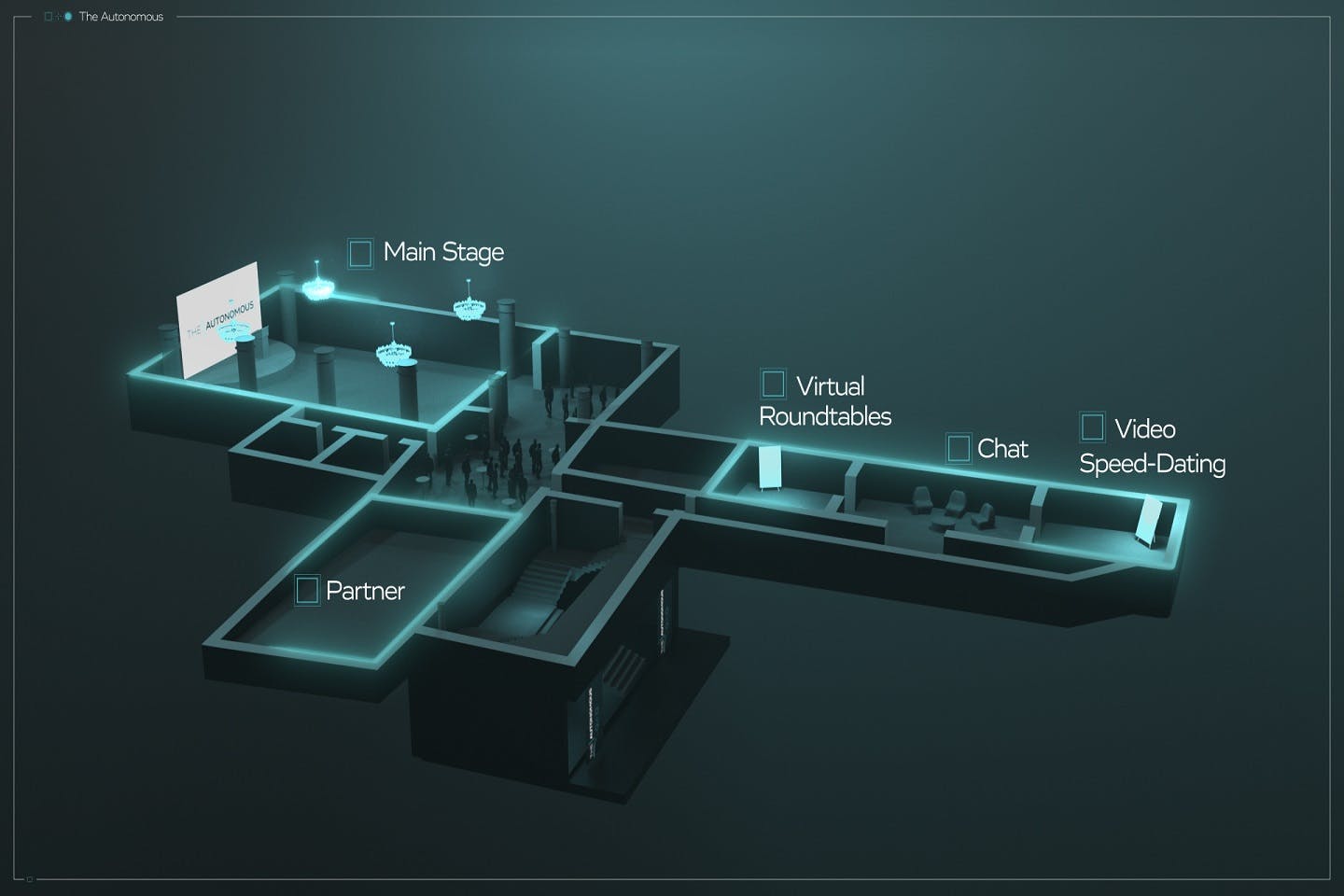
Our partners
Become a partnerJoin us
Let’s make it an unforgettable event!
